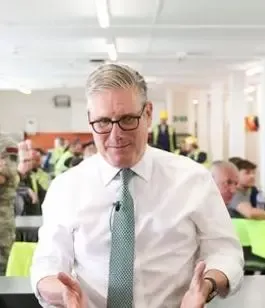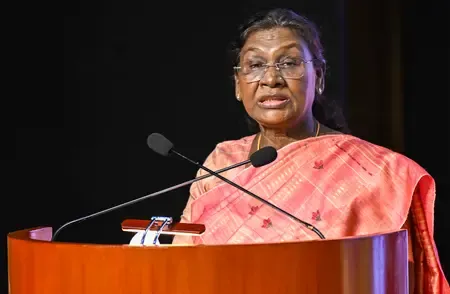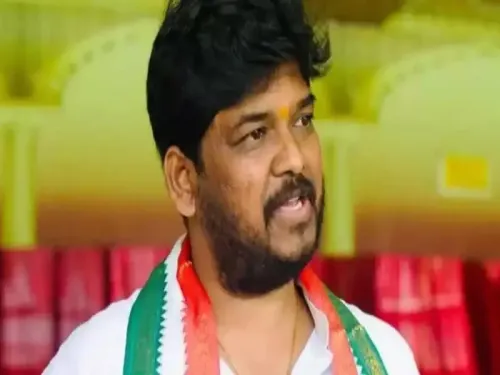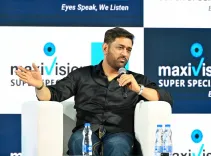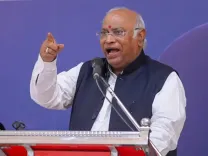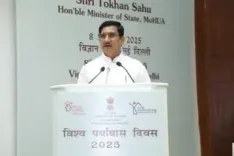How Can India-US Ties Benefit from Diaspora Leadership?
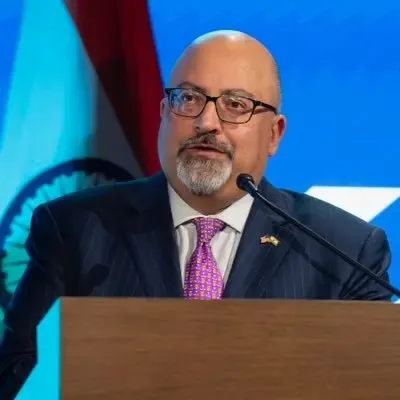
Synopsis
Key Takeaways
- Stronger India-US cooperation is vital for mutual benefit.
- The Indian American community plays a crucial role in policy advocacy.
- Quiet diplomacy may be an effective strategy in challenging political climates.
- Financial contributions from the diaspora significantly support India.
- Building relationships with US policymakers is essential for future collaboration.
Washington, Oct 8 (NationPress) Influential figures from the Indian American community are advocating for enhanced cooperation between India and the US, emphasizing a proactive stance for the diaspora in influencing policy discussions.
During a panel event hosted on Tuesday by India Abroad, a publication dedicated to diaspora issues in the United States, Atul Keshap, the President of the US-India Business Council and former Charge d’Affairs at the US Embassy in New Delhi, proposed the concept of “quiet diplomacy” amid challenging circumstances.
“These times are tough. I believe that the diaspora, reflecting on recent months, is likely questioning how they can be impactful, supportive, and constructive. In such moments, engaging in quiet diplomacy might be the most effective approach,” he remarked.
Keshap also addressed the recent crackdown on H-1B visas by the Trump administration, labeling it a choice “influenced by domestic politics.”
“In a nation as diverse and complex as India, which is also a democracy, it's understandable that there are domestic political factors that may affect how the United States interacts globally,” he pointed out.
The dialogue surrounding the role of the Indian American community in the US has gained momentum following Congress Member of Parliament Shashi Tharoor’s recent remarks describing the diaspora's silence as “puzzling” while relations between Washington and New Delhi have soured.
MR Rangaswami, founder of Indiaspora, a California-based non-profit, defended the community's involvement, referring to it as a “living bridge” between the US and India.
“Last year, the diaspora remitted a remarkable $135 billion to India, with $30 billion originating from the US. Indian Americans represent merely 1% of the population yet contribute 6% of the taxes. We have approximately 75,000 doctors in the US who cater to 30 million patients. The diaspora thrives here, creates wealth, and simultaneously supports India,” he emphasized.
Asha Jadeja Motwani, a venture capitalist based in Silicon Valley, advocated for stronger connections with the ruling Republican party.
“Simply put, the most effective strategy seems to be financial contributions toward specific initiatives. If feasible, attending dinners organized by the Republican Party to foster relationships is a prudent move,” she noted.
Rangaswami advised that any outreach from the diaspora to US officials should be framed within an “America First” context.
“Any initiative… such as bringing individuals to Washington to engage with the government, should emphasize an America-first positioning. Instead of stating what is happening in India, it should focus on its relevance to America. Any lobbying efforts in Washington must adopt an America-first approach,” he suggested.
Keshap emphasized that India must recognize that politics in America is evolving rapidly, stating, “In three years, America will look very different.”
“This transformation will be substantial. The current administration's ambitions to alter economic interactions and global engagement are profound, compelling countries to consider adjustments. This leads to the crucial questions of relevance and reciprocity – our ability to remain integral to one another is vital for advancing our relationship,” he concluded.

